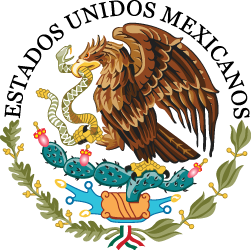This is Why I Use Argan Oil for Hair | Is Argan Oil Liquid Gold?
CCMray • June 28, 2024 • 0 views
Argan Oil for Hair. How to Use Argan Oil for Hair. Does Argan Oil for Hair Growth Work? What is the Best Argan Oil for Hair. Watch First Before Trying Argan Oil.
Timeline |
Chapters 00:00 - Intro 0:31 -
What is Argan Oil 1:13 -
Why it's Unique 2:08 - S
calp and Elasticity Benefits 2:35 -
Elasticity Test 3:49 - Drawbacks? 4:23 -
Which Argan Oil? 5:13 -
How to Use it What is Argan Oil? Argan oil, often referred to as "liquid gold," is a natural oil extracted from the kernels of the argan tree (Argania spinosa), which is native to Morocco. For centuries, Moroccan women have used argan oil in their beauty and culinary routines, valuing it for its nourishing properties. Today, argan oil is a staple in the beauty industry, known for its ability to enhance skin, hair, and nails. Does Argan Oil for Hair Work? What Makes Argan Oil Work? Fatty Acids: Argan oil is primarily composed of fatty acids, including oleic and linoleic acids. These help to moisturize and nourish the hair, skin, and nails. Vitamin E: This powerful antioxidant helps to protect the hair and skin from environmental damage. It also aids in hair growth and repair. Polyphenols: These compounds have anti-inflammatory and antioxidant properties, which help to soothe the skin and protect it from damage. Squalene: This natural lipid is known for its moisturizing and anti-aging properties. Sterols: Plant sterols in argan oil help to reduce inflammation and improve skin metabolism. What is Argan Oil Good for? Benefits of Argan Oil The benefits of argan oil are extensive, impacting hair, skin, and overall health: Moisturizes and Conditions Hair: Argan oil is an excellent moisturizer for the hair, providing deep hydration and making it soft and manageable. It also helps to prevent split ends and breakage. Promotes Hair Growth: The nutrients in argan oil, particularly vitamin E, help to promote healthy hair growth by improving blood circulation to the scalp and strengthening hair follicles. Reduces Frizz and Improves Shine: Argan oil smooths the hair cuticle, reducing frizz and giving hair a healthy, shiny appearance. Protects Against Heat Damage: When used as a heat protectant, argan oil can shield the hair from damage caused by styling tools. Improves Scalp Health: Regular use of argan oil can help to balance oil production on the scalp, reducing dandruff and dryness. Anti-Aging for Skin: The antioxidants in argan oil help to reduce the appearance of fine lines and wrinkles, making it a popular ingredient in anti-aging skincare products. Heals Skin Conditions: Argan oil has anti-inflammatory properties that can help to soothe skin conditions such as eczema and psoriasis. Nail and Cuticle Care: Applying argan oil to nails and cuticles can strengthen and nourish them, preventing breakage and promoting healthy growth. How to Use Argan Oil for Hair For Hair: Dry or Damaged Hair: Use argan oil 2-3 times per week as a pre-shampoo treatment or leave-in conditioner. Normal Hair: Once or twice a week is sufficient to maintain moisture and shine. Oily Hair: Use sparingly, once a week or as needed, focusing on the ends rather than the scalp.
Timeline |
Chapters 00:00 - Intro 0:31 -
What is Argan Oil 1:13 -
Why it's Unique 2:08 - S
calp and Elasticity Benefits 2:35 -
Elasticity Test 3:49 - Drawbacks? 4:23 -
Which Argan Oil? 5:13 -
How to Use it What is Argan Oil? Argan oil, often referred to as "liquid gold," is a natural oil extracted from the kernels of the argan tree (Argania spinosa), which is native to Morocco. For centuries, Moroccan women have used argan oil in their beauty and culinary routines, valuing it for its nourishing properties. Today, argan oil is a staple in the beauty industry, known for its ability to enhance skin, hair, and nails. Does Argan Oil for Hair Work? What Makes Argan Oil Work? Fatty Acids: Argan oil is primarily composed of fatty acids, including oleic and linoleic acids. These help to moisturize and nourish the hair, skin, and nails. Vitamin E: This powerful antioxidant helps to protect the hair and skin from environmental damage. It also aids in hair growth and repair. Polyphenols: These compounds have anti-inflammatory and antioxidant properties, which help to soothe the skin and protect it from damage. Squalene: This natural lipid is known for its moisturizing and anti-aging properties. Sterols: Plant sterols in argan oil help to reduce inflammation and improve skin metabolism. What is Argan Oil Good for? Benefits of Argan Oil The benefits of argan oil are extensive, impacting hair, skin, and overall health: Moisturizes and Conditions Hair: Argan oil is an excellent moisturizer for the hair, providing deep hydration and making it soft and manageable. It also helps to prevent split ends and breakage. Promotes Hair Growth: The nutrients in argan oil, particularly vitamin E, help to promote healthy hair growth by improving blood circulation to the scalp and strengthening hair follicles. Reduces Frizz and Improves Shine: Argan oil smooths the hair cuticle, reducing frizz and giving hair a healthy, shiny appearance. Protects Against Heat Damage: When used as a heat protectant, argan oil can shield the hair from damage caused by styling tools. Improves Scalp Health: Regular use of argan oil can help to balance oil production on the scalp, reducing dandruff and dryness. Anti-Aging for Skin: The antioxidants in argan oil help to reduce the appearance of fine lines and wrinkles, making it a popular ingredient in anti-aging skincare products. Heals Skin Conditions: Argan oil has anti-inflammatory properties that can help to soothe skin conditions such as eczema and psoriasis. Nail and Cuticle Care: Applying argan oil to nails and cuticles can strengthen and nourish them, preventing breakage and promoting healthy growth. How to Use Argan Oil for Hair For Hair: Dry or Damaged Hair: Use argan oil 2-3 times per week as a pre-shampoo treatment or leave-in conditioner. Normal Hair: Once or twice a week is sufficient to maintain moisture and shine. Oily Hair: Use sparingly, once a week or as needed, focusing on the ends rather than the scalp.

























